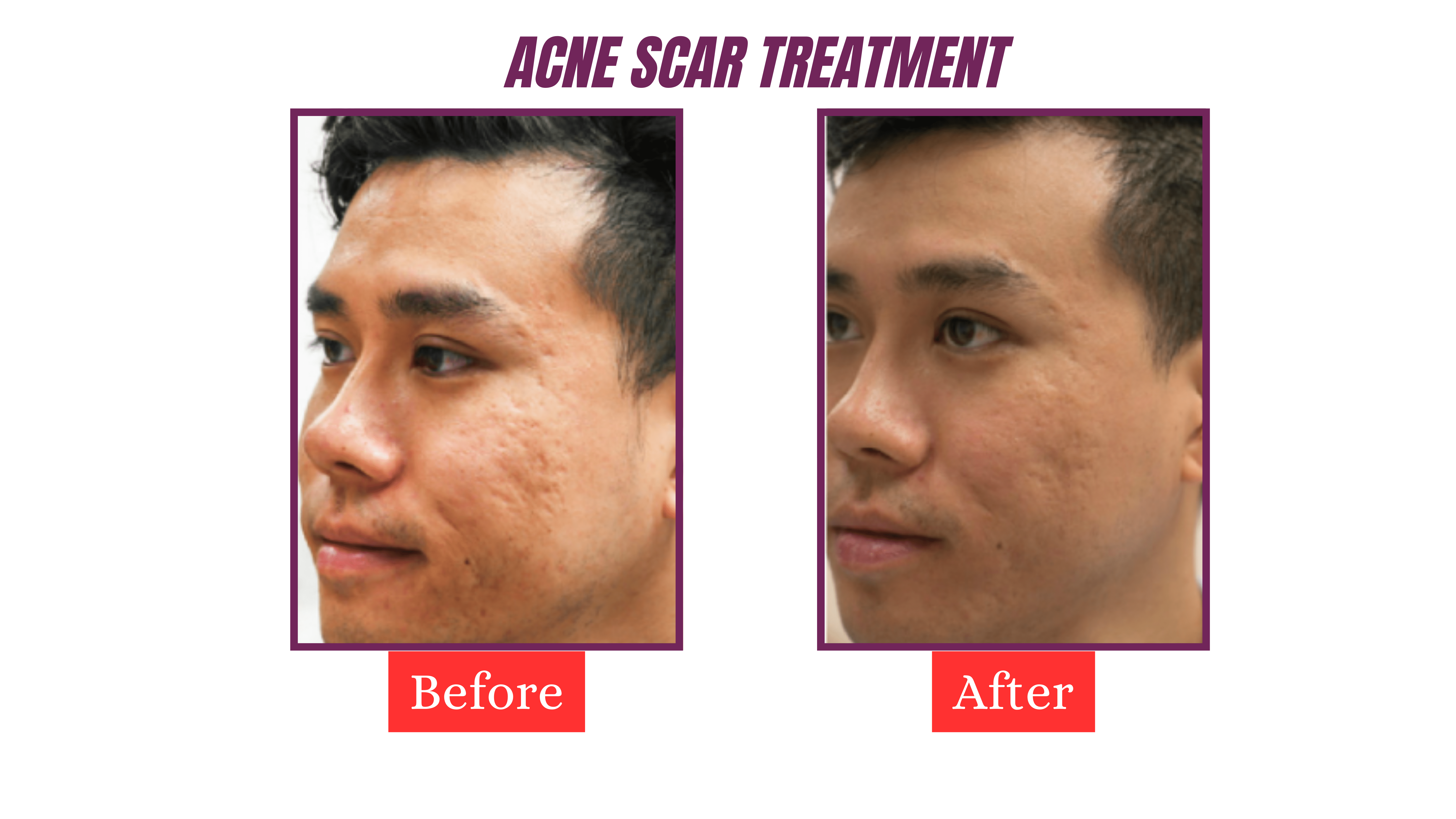Best Acne Scar treatment
Avoiding complex health issues such as allergy need to be identified during the early stages in order to experience the optimum results. Allergens and pollens cause major problems due to which proper health benefits are not realized.
Acne scars often begin as small pimples on the face or other parts of the body. These scars can vary in type and severity. Initially, they may present as reddish marks on the skin, which are easier to treat if addressed promptly. Over time, however, these marks may deepen, forming blemishes or dark spots. In more severe cases, acne can cause significant damage to skin cells, resulting in deeper scars or zits that become more challenging to manage.
The best way to avoid acne scars is through prevention. If acne does appear, it’s important not to pinch or rub the pimples aggressively. Proper care and timely control of acne can significantly reduce the likelihood of scarring. However, if scars do develop, there’s no need to worry.
Several advanced treatments are available, such as depigmentation, chemical peels, laser therapy, and dermabrasion, which can help restore smooth, youthful skin. In Surat, skin treatments include some of the most cutting-edge techniques for effectively removing acne scars.
Many beliefs about the causes of acne are simply myths. Contrary to popular opinion, acne is not triggered by drinking too much coffee or consuming oily foods. Similarly, washing your face repeatedly won’t eliminate it. Acne occurs when dead skin cells block the oil pores, preventing the skin from breathing properly. This clogging can lead to pimples, which may sometimes become pus-filled.
The root cause of acne is often the overproduction of oil by sebaceous glands beneath the skin. This overactivity can result from hormonal changes or, in some cases, reactions to specific medications or underlying health conditions. Hormonal fluctuations remain one of the primary causes of acne.
If not addressed promptly, these pimples can leave noticeable marks on the skin. Early treatment with effective acne scar removal techniques can help restore a clear and flawless complexion.
How to avoid acne scars?
A consistent skincare program, avoiding picking at acne lesions, and preserving your skin from UV damage can all help prevent new scars from appearing. Consultations with a dermatologist on a regular basis can also be advantageous.
How should I care for my skin after an acne scar treatment?
Follow your dermatologist's post-treatment care instructions, which may include minimizing sun exposure, using moderate skincare products, and keeping the treated area well moisturised.
Is it possible to treat acne scars at home?
While some home cures, such as vitamin C serums or certain masks, may be beneficial, professional treatments are often more effective for severe acne scars.
Can I undergo acne scar treatment if I still have active acne?
No! Before you begin therapy for acne scars, your skin must be free of blemishes. Acne treatment and medication may react with scar medications and treatments.
Are there any side effects of acne scar treatment?
Although side effects vary depending on the treatment approach, they may include redness, swelling, or temporary changes in skin pigmentation. All of these subside gradually with time. Consult with your dermatologist about potential risks.
Can acne scars completely go away?
While complete removal is difficult, significant improvement is frequently attainable. Scars are generally minimised rather than fully removed.
When can I see results from acne scar treatment?
Treatment results vary, but improvement is often gradual, and it may take several sessions or months to see noticeable effects.
How do I know which acne scar treatment is best for my skin type?
See a dermatologist to determine your skin type and scar severity. They can offer the best personalized acne scar treatment plan depending on your specific requirements.
What is the most effective acne scar treatment?
Treatments' efficiency varies, but commonly recommended choices include laser therapy, chemical peels, microneedling, and skin fillers.
Why do I get acne scars?
Acne scars happen when your body tries to fix acne. How much scarring you get depends on how your body heals. When your body repairs the skin, it makes collagen. If there's too much collagen, you get raised scars. Some scars happen when there's a loss of tissue, creating pits or dents in the skin.
Results

